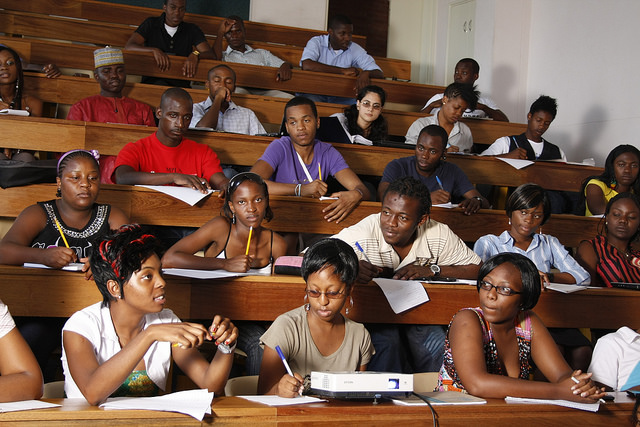
Critical thinking skills connect classroom learning to the world beyond
Stronger connections need to be forged between universities, communities, industries and nations. Jon Harle discusses how the Transforming Employability for Social Change in East Africa project aims to address this challenge in East Africa
Africa is a youthful continent. Roughly 60% of its people are under the age of 25. So it is the continent’s young people who must be empowered, and their creativity, energy and skills which must be nurtured and harnessed, to transform the prospects of their communities and countries.
But it is clear that, with many African graduates struggling to find jobs and with many more queuing up to be admitted, the higher education system is struggling to support Africa’s youth to achieve their full potential.
Too often degree programmes don’t give students the opportunities to develop the knowledge and skills they need to prosper once they graduate, particularly when formal graduate jobs are scarce. For example, the Federation of Kenya Employers reports that 70% of graduates in the country are unprepared for work.
Universities across the continent have recognized that the quality and relevance of curricula need to be improved, that pedagogies need to be rethought, and that stronger connections need to be forged between universities and the communities, industries and nations that they serve.
But while it may be struggling, the higher education system is also a site of innovation and new thinking.
Networks of universities have come together – like RUFORUM in agriculture, or the collaborative Master of Research and Public Policy– to forge new ways of researching critical questions, and preparing the next generation of professionals. Individual universities have re-designed degree programmes, developed internship programmes, established business incubators and forged new relationships with industry.
Critical thinking and problem solving
The major challenge, however, is to move beyond islands of good teaching, to foster change at a scale that ensures all students are able to learn.
Over the last two years we’ve built a partnership to try and do just this. The Transforming Employability for Social Change in East Africa project – or TESCEA – is an initiative of four East African universities – Dodoma, Mzumbe, Uganda Martyrs and Gulu — a global social entrepreneurship network (Ashoka), an organization dedicated to academic links with industry (LIWA), a Kenyan faculty development group (AFELT), and INASP.
Our starting point is that critical thinking and problem solving are part of the skillset of the 21st century graduate, and that to develop these skills students need to be engaged in a learning environment that encourages questioning, and that connects classroom learning to the questions that business, communities and government are asking through placements or other practical projects.
Each university has identified a number of degree programmes, and within each a set of courses that, rolled out over the three years of an undergraduate programme, could be used to foster greater critical thought. The idea is simple but potentially powerful. Rather than seek to re-design entire degree programmes, a significant and slow undertaking, and one that would require the project to focus on just one or two programmes, each university will re-design a set of core courses, rolling them out to students once ready, and adjusting as necessary.
By working across the partnership to combine expertise and share learning, we hope to achieve more than a single university could achieve working alone. Not only will we be able to share and then adapt curricula between partners, but we will be growing a peer network of faculty who can support each other to rethink their pedagogy.
But the real potential comes from the model that we’re hoping to develop, test and refine. By working with different disciplines, we plan to develop a ‘generic’ critical thinking curriculum which can be adapted by other programmes. By the end of the project we should have a model which will allow each university to scale this new curriculum across schools and departments – and enable new universities to embark on the same process, supported by materials and expertise developed by the partnership.
Wider organizational change
Of course, re-designing courses and supporting faculty to develop new approaches to pedagogy is only one part of the challenge. Genuinely transforming the learning experience for students and teachers in the courses and programmes which we’ll be focusing on first, and laying the foundations for partners to scale the project’s approach across further faculties and schools, means we also need to be tuned to wider processes of organizational change. This isn’t simply about updating course content or developing new skills in teaching staff. It is about an engagement with the wider mission of the university, identifying the policies and processes that will need to be updated to enable and encourage staff and students to approach learning differently, bringing teams together on campus to rethink their approaches, and engaging with organisational culture and leadership, to inspire the change that we know is so urgently needed if young people are able to realise their potential – and in doing so, that of their communities and countries.
There’s no doubt that this is an ambitious undertaking, and we’re breaking new ground as we do. But it’s clear that Africa’s youth – its future students and graduates – can’t afford to leave higher education lacking the capacities they need to thrive.
Image credit: Students at Africa University, Zimbabwe
Source: https://www.flickr.com/photos/africauniversity/12368841324/in/photostream

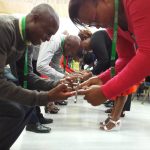 Previous Post
Previous Post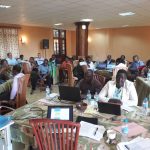 Next Post
Next Post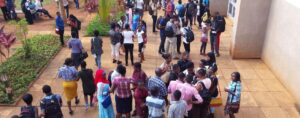
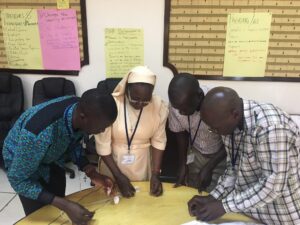
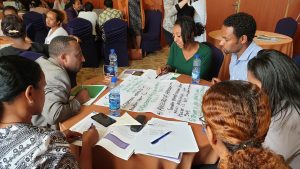
It’s really a useful programme for East African Universities and their students as well as the staff. I wish that Somali Universities were included in this valuable programme. Actually, Somalia is one of the youthful countries in Africa. It is estimated that 75% of its population is younger than 30 years.
The learning and knowledge is more important to assistance of social change with community in the country people can’t interested the learn .if the people want change they could hope and see sight the future is beautiful don’t see the abstract but things how you transfer this with work and challenges the conditions and be. Up more future